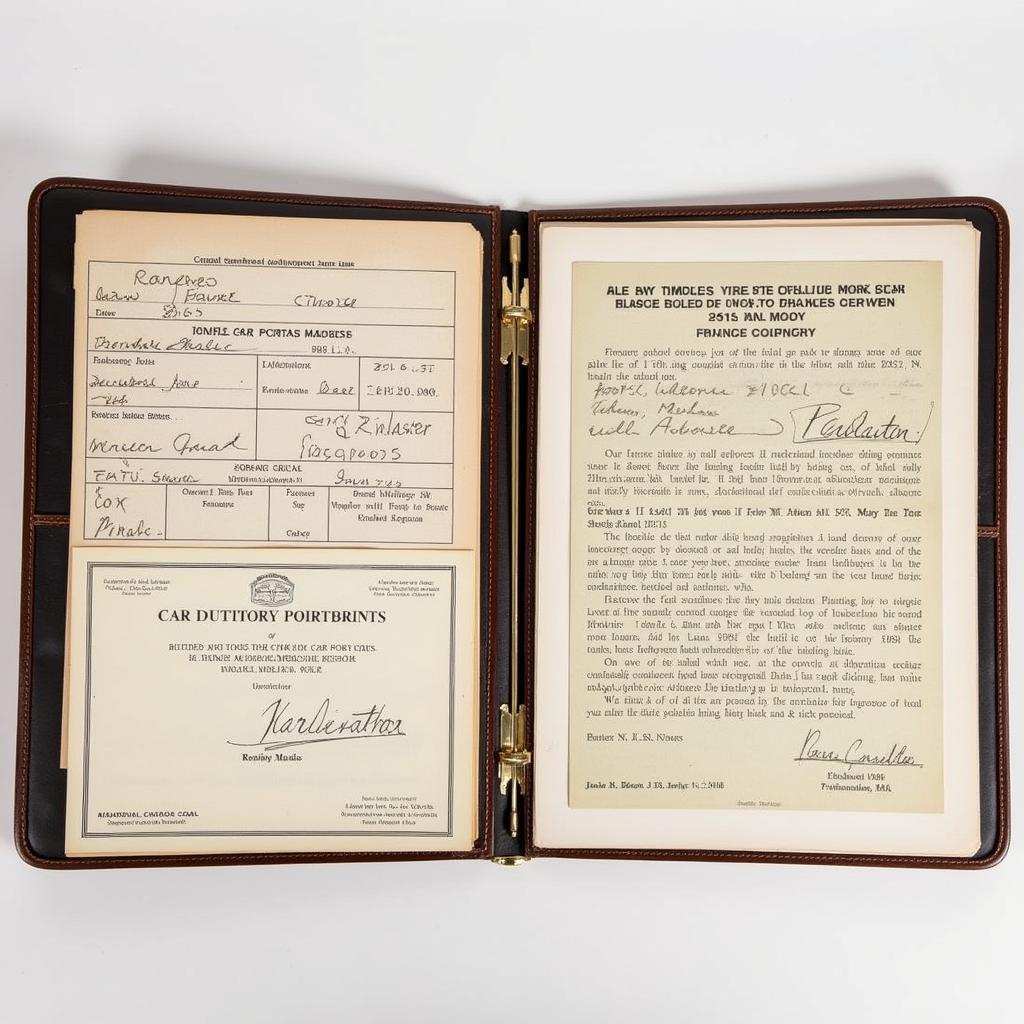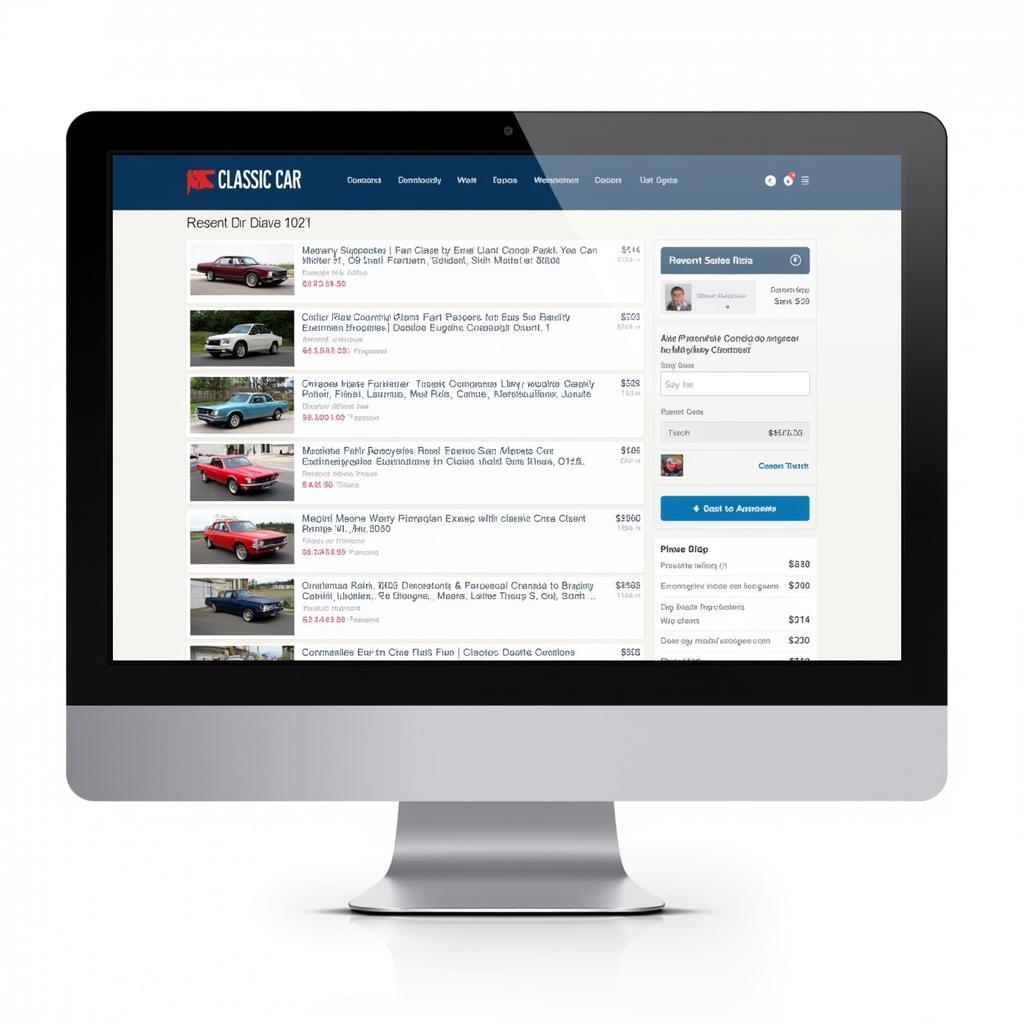Owning a classic car is a dream for many, but knowing what your prized possession is worth can be a tricky business. Unlike modern cars with readily available data, classic car valuation requires a deeper understanding of numerous factors that influence their value. This comprehensive guide will equip you with the knowledge and resources needed to confidently navigate the exciting world of classic car valuation.
Factors that Influence Classic Car Value
Several factors contribute to a classic car’s worth, some more obvious than others. Let’s delve into the key elements that play a crucial role:
1. Year, Make, and Model
This might seem obvious, but the rarity and desirability of a particular year, make, and model significantly impact its value. Limited production runs, special editions, and historically significant models command a premium.
2. Condition
A classic car’s condition is paramount in determining its value. Collectors are meticulous about originality, so a well-maintained original vehicle will be worth more than a restored one, even if the restoration is of high quality. Assess the condition of the bodywork, paint, interior, engine, and mechanical components.
3. Originality
Maintaining a classic car’s originality is crucial. Original parts, paint, and interior are highly sought after by collectors. Modifications and aftermarket additions can negatively impact the value unless they enhance the car’s historical significance or performance in a desirable way.
4. Documentation
A comprehensive history documented with service records, restoration receipts, and ownership history adds significant value to a classic car. It provides potential buyers with transparency and confidence in the vehicle’s past.
 Classic Car Documentation
Classic Car Documentation
5. Provenance
The history of ownership can significantly influence a classic car’s value. A vehicle with a notable previous owner, such as a celebrity or racing driver, or a car with a documented racing pedigree, can command a premium price.
6. Market Demand
Like any collectible, the value of a classic car is subject to market fluctuations. Trends, economic conditions, and collector preferences can all influence demand and, consequently, the value of specific models.
Methods of Classic Car Valuation
There are various ways to determine the value of your classic car, each offering different levels of accuracy and cost-effectiveness:
1. Online Valuation Tools
Several online platforms offer free or paid classic car valuation tools. These tools utilize vast databases and algorithms to provide estimated values based on the information you input. While convenient, it’s important to remember that these are estimates and may not consider all the nuances of your specific vehicle. Websites like How Much Is My Car Worth? can be a good starting point.
2. Professional Appraisals
For the most accurate and reliable valuation, engaging a professional classic car appraiser is recommended. These experts possess the knowledge, experience, and resources to thoroughly evaluate your car’s condition, originality, and market value. They provide a detailed appraisal report that can be used for insurance purposes, sales negotiations, or estate planning.
3. Auction Results
Monitoring classic car auction results can provide insights into current market trends and values for specific models. However, it’s important to consider that auction prices can fluctuate significantly based on factors such as bidding wars and the emotional attachment of buyers.
 Classic Car Auction Results
Classic Car Auction Results
4. Classic Car Price Guides
Several reputable price guides specialize in classic car valuations. These guides provide average values for various models based on condition and other factors. While helpful for gaining a general understanding of market value, they may not always reflect regional variations or the unique attributes of your specific vehicle.
Tips for Maximizing Your Classic Car’s Value
1. Meticulous Maintenance:
Regularly servicing your classic car and addressing any mechanical or cosmetic issues promptly will preserve its condition and value.
2. Preserve Originality:
Resist the temptation to make unnecessary modifications. Maintain original parts whenever possible, and if restoration is necessary, prioritize using authentic materials and techniques.
3. Comprehensive Documentation:
Keep all service records, restoration receipts, and ownership documents organized and accessible. This documentation adds significant value to your car.
4. Expert Advice:
Consult with reputable classic car specialists, mechanics, and appraisers for advice on maintaining, restoring, and valuing your vehicle.
Conclusion
Determining the value of your classic car is a multi-faceted process that requires careful consideration of various factors. By understanding the elements that influence value, utilizing reliable valuation methods, and prioritizing preservation, you can gain a clear picture of your classic car’s worth. Whether you plan to sell your prized possession or pass it down through generations, a thorough understanding of its value is essential.


